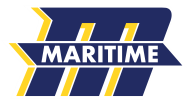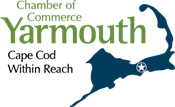By Stephanie Ellis
It’s a harsh world we live in. Everywhere where turn, there is news of gloom and destruction.
In Massachusetts, we are fortunate to live in a place dotted by beautiful landscapes and an abundance of wildlife. Wildlife adds intrinsic value and natural beauty to our environment, and provides us a wonderful respite from everyday stressors. All around us, wild creatures carry out their lives, seemingly unhindered by the day-to-day hustle and bustle and stressors we as humans must face in everyday life. They may go unnoticed, taken for granted, or thought of as pests.
In our busy lives, we often forget how much we depend on wildlife to maintain balance in the natural world, and how much our wild neighbors depend on us to protect and preserve them and their habitats. Instead, humans have a tendency to get in their way.
Wild Care is a wildlife rehabilitation hospital dedicated to treating injured, orphaned, and ill wildlife, with a goal of release back into the wild. Not only do we provide rehabilitative care for over 1,300 animals per year and prepare them for release, Wild Care also operates a critical Wildlife Helpline, 365 days per year, providing live counseling to the public. Through this hotline, we facilitate rescues for wildlife in despair, and help to resolve human/wildlife conflict. We educate the public about how to coexist harmoniously with their wild neighbors.
This year alone, Wild Care has fielded over 8,000 phone calls from concerned citizens. In 2016, Wild Care received 1,373 animals into care. Of these animals, 45 percent were brought to our door due to known human-induced impacts, both direct and indirect. These are animals that were struck by cars, attacked by free-roaming cats, caught in glue traps, orphaned from tree felling, displaced due to habitat destruction, sickened by lead poisoning, even some injured by intentional cruelty. Sadly, this figure is a gross underestimate of what the unknown direct and indirect human-related impacts would be.
Some may wonder why Wild Care rehabilitates animals such as Eastern Gray Squirrels or Virginia Opossums, species so abundant that they seemingly don’t matter. At Wild Care our philosophy is, every animal matters. Every animal plays an important role in our ecosystem. Every animal teaches us about the biology and behavior of that species, and provides us with a firsthand understanding of what is affecting them in their natural environment. Only through this understanding can we educate the community and work together to prevent human-induced wildlife casualties.
That 45 percent represents animals brought to just one small wildlife hospital in the United States in the short period of one year. The national and global human impact on wildlife is substantial, and increasing exponentially. Isn’t it our responsibility as humans to care for and preserve these animals, and to work to educate and reduce these negative human impacts? Isn’t it our responsibility to make an effort to share our environment with the wild creatures that live outside our door? At Wild Care, we believe it is.
Though it may seem daunting, there are many things that we can all do in our backyards and communities to reduce negative human/wildlife conflicts. Eliminating rodenticides, reserving tree felling for the winter months when animals are not nesting, assisting a turtle across the road, putting up nest boxes, planting wildlife habitat, and preserving land are just a few things that each and every one of us can do in our daily lives to help our wild neighbors.
The next time you see that squirrel in your backyard, I challenge you to think of it not as the furry enemy, but instead as a reminder of the beautiful place that we live in. A place where wild creatures are abundant, and play an important role in our natural ecosystems. A place where you are an ambassador and your actions can make a positive difference for wildlife. Only through our conscious efforts to reduce our large footprint, can we pave the way for their smaller ones, and ultimately pave the way towards a healthier planet.
Stephanie Ellis is executive director of Wild Care Inc., based in Eastham. More at wildcarecapecod.org























